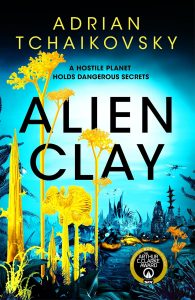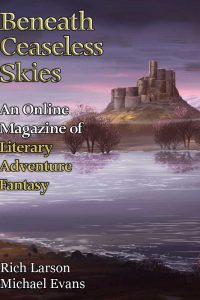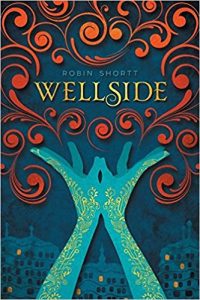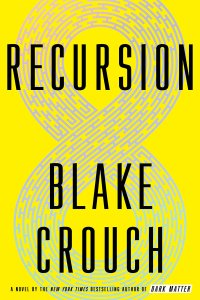Alien Clay by Adrian Tchaikovsky: Review by Niall Harrison
 Alien Clay, Adrian Tchaikovsky (Tor UK 978-1035013746, 400pp, £16.99, hc) March 2024. (Orbit US 978-0316578974 , $19.999, 432pp, tp) September 2024. Cover by Lauren Panepinto.
Alien Clay, Adrian Tchaikovsky (Tor UK 978-1035013746, 400pp, £16.99, hc) March 2024. (Orbit US 978-0316578974 , $19.999, 432pp, tp) September 2024. Cover by Lauren Panepinto.
Sometimes the way into a story is through another story. Probably the most familiar route is through a genealogical relationship, in which a new story attempts to extend or argue with an old one: All those works unpicking the cold equations or attempting to solve Omelas. Sometimes the weather changes, and there’s a desert bloom of stories within a particular region of SF’s ecology, as has happened with the multiverse in recent years. And occasionally it feels possible to observe a form of literary carcinization, the parallel evolution of the same idea. All of which is to say that I didn’t expect to read, so soon after Greg Egan’s Morphotropic, another science fiction novel with as esoteric a premise as “what would a world in which macroscopic organisms routinely exchange biomass look like,” but here we are.
Of course imperial-phase Adrianus tchaikovskius is a different beast to later-career Gregorius eganus. Morphotropic is a calmly analytic exploration of an alternate Earth, asking how human society might operate if the building-blocks of organisms were “cytes,” which stay within their host only so long as the arrangement is mutually beneficial. (In the opening chapter, a character wakes up to find an arm and a leg have partially dissolved.) Adrian Tchaikovsky’s Alien Clay is, as the title hints, set elsewhere, and rather more kinetic. The narrator, Arton Daghdev, is an ecologist exiled from authoritarian Earth for scientific thoughtcrime and a little light revolutionary subversion. The venue of his exile is Imno 27g, known colloquially as Kiln, one of a few places in the universe where nonhuman macrocellular life has been discovered, and the only one where there may at some point have been intelligent life. The Mandate on Earth, we are told, has no interest in colonisation, given the impracticalities of interstellar distance, but it would like to systematise, to provide an explanation for the Earthbound masses about how Kilnish life fits into its governing dogma that “the universe has a direction, and the direction is us.” And so they set up a labour camp on Kiln, instructed (like Golden Age SF writers) to find the answers the Mandate wants to hear about how Kilnish civilisation does not represent a challenge to humanity’s manifest destiny. Needless to say, this is not an ideal environment for unbiased research, and it’s very obvious that Kilnish life, although carbon-based, will not fit into the box that the Mandate would like it to.
Tchaikovsky is typically vivid in his creation of the Kilnish ecosystem: a blue sky, mottled yellow-black by clouds of aerial plankton, under which are “trees” with no dendritic structure, just “vases crowned with a great rosette of black petals” rooted in “dusty burnt-looking ground.” Scattered across the planet are the structures that the Mandate has taken as evidence of former civilisation, stamped with what appears to be writing, but there is no apparent intelligence in the present, only monstrous-seeming creatures of “appalling crouching legginess,” and no common body-type; one particularly memorable beast is a “tripod thing on broad rubber feet, half stepping, half rolling [with] rippling plates that glisten as though they’re still drying.” Every macroorganism, it transpires, is a chaos-katamari of symbiotic and mutualistic arrangements, the same modules turning up in different contexts, making taxonomy impossible. There are no species in the sense we understand them. As one character puts it, wearily, “Cut something open and there’s something else inside it, wearing its skin.” And alarmingly for the characters, Kilnish life reacts to the presence of Earth life in a way that seems analogous to a virus seeking a route into a host.
The evocation of the Mandate’s oppression, while more obviously drawing on historical authoritarian references, is equally robust. “It’s not enough to be able to do a thing,” Daghdev notes. “People, human people, want to be able to believe it’s right to do so.” It is to Tchaikovsky’s credit, I think, that his narrative is not the story of triumph through intellectual honesty; in fact it is in large part about how people adapt to an intellectually dishonest context. Thus various members of the camp contort their intellect with a greater or lesser degree of self-consciousness, from the archaeologist who desperately wants to solve the mystery of Kiln but can’t let himself think outside of the Mandate’s paradigms, to the camp Commandant, who manages to be “simultaneously driven to find out the answer, and absolutely sure he knows what that answer will be.” Daghdev himself is sardonic enough to serve as a commentator on the foibles of those around him, and prideful enough that he doesn’t feel implausible.
Perhaps the most distinctive aspect of the novel is that by the end the underlying politics is not about the individual versus the collective: Instead, when it comes to the Mandate versus Kiln, we have a debate about different types of collective organisation. There is welcome, low-key commentary on how human societies handle differences of ability and gender (although, curiously, not race), and a provocative suggestion that humanity’s presence on Kiln has accelerated certain environmental processes, opening the way to reading Alien Clay as a type of Anthropocene novel. Most striking is the fact that, despite an element of communication between organisms, Kilnish life is explicitly not a form of hive mind; metaphors instead range from Kilnish sub-organisms as “good tenants,” to employees with “long resumes already pre-adapted to fulfil all your symbiosis needs,” to “little subcommittees” and “shareholders.” The ecosystem as a whole is presented as something close to an ideal democracy: “You have different groundswells of popular opinion gathering momentum… until one urge or impulse reaches a critical mass [and] those elements which were rooting for the alternatives give in with good grace.” No demagogues, “just a group acting together, for everyone’s best benefit.”
I confess: Beyond the monsters and inventiveness and sheer narrative drive of Alien Clay, it was this analogy, which should be the baseline but seems almost utopian in current contexts, that moved me the most. There is however an irony here, revealed as my brain processed this novel alongside Morphotropic. The two books share many features arising from the similarity of their premises – arguments for the preservation of scientific inquiry (from politicisation in Tchaikovsky, from corporatisation in Egan); moments of creative grotesquerie; an underlying belief in the possibility of good institutions (although the larger superstructure of society remains relatively unclear in Egan’s story); and a welcome demonstration of the value of fluidity and connection. “Each cell needs the other cells,” reflects Daghdev at one point, “each organ needs the other organs, each organism needs the other organisms. The base unit of life is all life.” But there is a notable difference between the two in terms of their structure. Egan’s tale is less neat than Tchaikovsky’s; it wanders, with a thought-experiment feel, a sense of following the ideas where they lead. In the moment, it is perhaps less satisfying as a novel. The flipside of that tentativeness, however, is that the confidence of Alien Clay makes it feel like a vehicle for argument, not a venue for inquiry. Not carcinisation after all, so much as intelligent design: Alien Clay perhaps inadvertently reminds us that in fiction, it’s quite common for an author to decide what answer they’re aiming for, and make sure that it works.
Interested in this title? Your purchase through the links below brings us a small amount of affiliate income and helps us keep doing all the reviews you love to read!
In Niall Harrison‘s spare time, he writes reviews and essays about sf. He is a former editor of Vector (2006-2010) and Strange Horizons (2010-2017), as well as a former Arthur C. Clarke Award judge and various other things.
This review and more like it in the September 2024 issue of Locus.
While you are here, please take a moment to support Locus with a one-time or recurring donation. We rely on reader donations to keep the magazine and site going, and would like to keep the site paywall free, but WE NEED YOUR FINANCIAL SUPPORT to continue quality coverage of the science fiction and fantasy field.
©Locus Magazine. Copyrighted material may not be republished without permission of LSFF.










